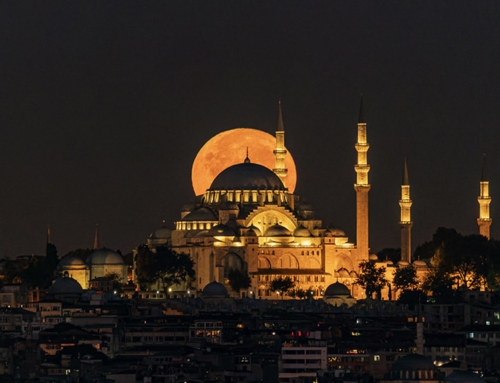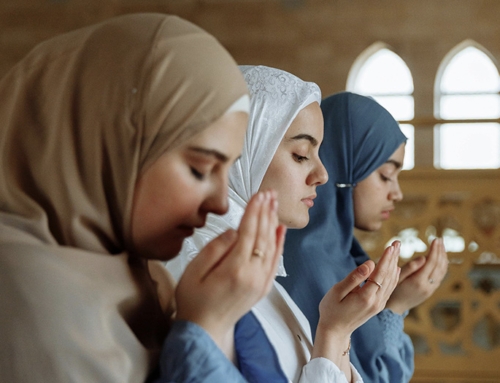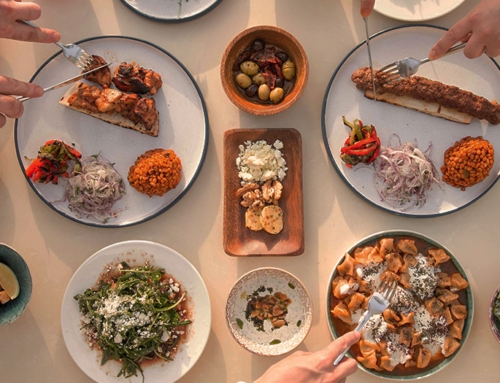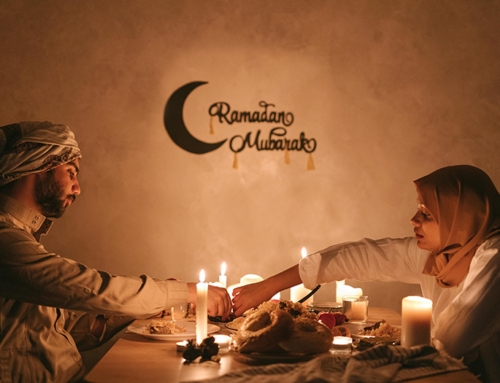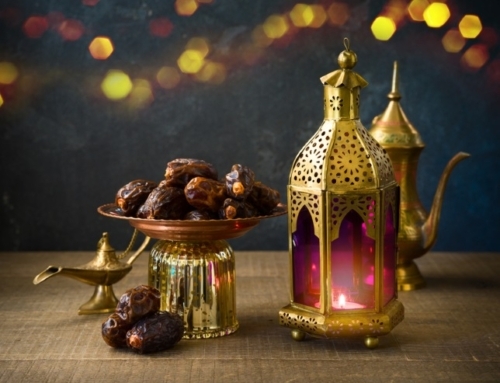Understanding Ramadan: Significance, Fasting, and Beliefs
Q: What is Ramadan?
A: Ramadan is the name of the ninth Islamic lunar month. It is the month God ordered the Muslims to fast since it was the month He revealed the Quran (the Muslims’ holy scripture) to Muhammad (the final Prophet of God). Muslims abstain from eating, drinking and intimate relations with their spouse during the daylight hours of the blessed month. It is a time for Muslims to contemplate on their belief and increase their faith by actively increasing in worship, prayer and reciting the Qur’an. It is an opportunity for spiritual as well as physical purification.
Q: Do Muslims Not Eat and Drink for a Whole Month?
A: No. Muslims are ordered to abstain from food, drink and sensual pleasures from the break of dawn until sunset throughout the whole month. This means, that after sunset until the break of dawn of the following day, Muslims may eat and drink as they please. Many Muslims take this opportunity to invite friends and family over to share in the spirit of Ramadan.
Q: What do Muslims do During Ramadan?
A: Muslims usually wake before dawn to take a small meal called “suhoor”. They abstain from eating, drinking and sensual pleasures during the daylight hours of the blessed month. Muslims exert more effort in worship, praying, contemplating, helping others, giving charity, reciting the Quran (the holy book of the Muslims); many Muslims endeavor to complete the Quran’s recitation at least once during the month. At sunset, Muslims break their fast, usually with a big meal with family and friends. Many Muslims also attend the mosque at night, to engage in special night prayers called “taraweeh”.
Q: Is Ramadan a Prophet of Islam?
A: No, Ramadan is not a Prophet of Islam. Ramadan is simply the name of the ninth month of the Islamic lunar calender. It happens to be the month that God revealed the Quran, to Muhammad (the final Prophet of God). Islam believes and honors all the Prophets of the past as servants and Messengers of God, including Noah (Nooh), Abraham (Ibrahim), Moses (Musa) and Jesus (‘Isa), may God send His peace upon them all. Muslims believe that Muhammad is the final Messenger of God, that the previous Messengers prophesized about. He preached the same message as those before him: “Worship God alone, you have no god besides Him”.
Q: Do Children, Sick and Old People Need to Fast?
A: Fasting is only obligated on Muslims who have reached puberty, are sane and are healthy. So children who have not reached puberty are exempt, but are encouraged to fast some days, or a portion of a day, to train them for when they are obliged to fast. The temporarily sick who have a sickness that may extend a few days, where fasting may severely affect them or prolong their recovery are not obliged to fast but must make up the days after Ramadan. The chronically ill and elderly, for example those with diabetes, are not obliged to fast, but should feed a needy or poor person for each day they miss.
Q: How Did the Fast During Ramadan Become Obligatory for Muslims?
A: The revelations from God to the Prophet Muhammad that would eventually be compiled as the Quran began during Ramadan in the year 610, but the fast of Ramadan did not become a religious obligation for Muslims until the year 624. The obligation to fast is explained in the second chapter of the Quran: “O ye who believe! Fasting is prescribed to you as it was prescribed to those before you, that ye may (learn) self-restraint… Ramadan is the (month) in which was sent down the Quran, as a guide to mankind, also clear (Signs) for guidance and judgment (between right and wrong). So every one of you who is present (at his home) during that month should spend it in fasting…” (Chapter 2, verses 183 and 185)
Q: What Do Muslims Believe they Gain from Fasting?
A: Some of the main benefits of Ramadan are an increased compassion for those in need of the necessities of life, a sense of self-purification and reflection and a renewed focus on spirituality. Muslims also appreciate the feeling of togetherness shared by family and friends throughout the month. Perhaps the greatest practical benefit is the yearly lesson in self-restraint and discipline that can carry forward to other aspects of a Muslim’s life such as work and education.
Q: Why Does Ramadan Begin on a Different Day Each Year?
A: Because Ramadan is a lunar month, it begins about eleven days earlier each year. Throughout a Muslim’s lifetime, Ramadan will fall both during winter months, when the days are short, and summer months, when the days are long and the fast is more difficult. In this way, the difficulty of the fast is evenly distributed between Muslims living in the northern and southern hemispheres.
Q: What is Lailat Ul-Qadr?
A: Lailat ul-Qadr (“Night of Power”) marks the anniversary of the night on which the Prophet Muhammad first began receiving revelations from God, through the angel Gabriel. An entire chapter in the Quran deals with this night: “We have indeed revealed this (Message) in the Night of Power: and what will explain to thee what the Night of Power is? The Night of Power is better than a thousand months. Therein come down the angels and the Spirit by God’s permission, on every errand. Peace!…This until the rise of morn.” (Chapter 97) Muslims believe Lailat ul-Qadr is one of the odd-numbered nights in the last ten days of Ramadan.
Q: How Can Non-Muslim Co-Workers and Friends Help Someone Who is Fasting?
A: Employers, co-workers and teachers can help by understanding the significance of Ramadan and by showing a willingness to make minor allowances for its physical demands. Special consideration can be given to such things as requests for vacation time, the need for flexible early morning or evening work schedules and lighter homework assignments. It is also very important that Muslim workers and students be given time to attend Eid prayers at the end of Ramadan. Eid is as important to Muslims as Christmas and Yom Kippur are to Christians and Jews. A small token such as a card (there are Eid cards available from Muslim bookstores) or baked goods given to a Muslim co-worker during Eid ul-Fitr would also be greatly appreciated. Hospital workers should be aware that injections and oral medications might break the fast. Patients should be given the opportunity to decide whether or not their condition exempts them from fasting.
Got Questions?
We have Answers. Get in touch now.



